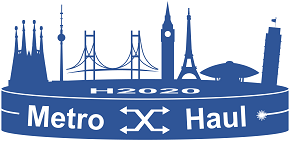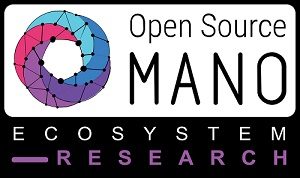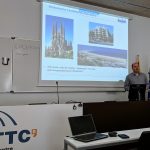Metro-Haul makes a big impact at OFC 2018
OFC 2018 (https://www.ofcconference.org/en-us/home/) in San Diego is the first major conference seeing significant Metro-Haul dissemination. The project began in June 2017, and we are already seeing a wide range of work emerging from all parts of this large European funded project. Metro-Haul partners are deeply involved in this conference, exerting plenty of influence on the direction of optical networks. We are presenting regular papers, posters, demos and speaking at and coordinating workshops, see our blog: “Metro-Haul Impact at OFC 2018”.
One of the main reasons Metro-Haul is already so successful relates to the timeliness of its main theme: how optical networks should evolve to handle future 5G services. 5G is clearly a huge global development, unlocking many applications that require, not just high bandwidth, but potentially low latency, edge-compute / storage functions and a large number of end points for IoT-related applications.
Despite this impending 5G tsunami, there still aren’t too many optical research programmes focused on it. Nevertheless, it’s great to see acknowledgement from OFC this year in the form of an interesting symposium “Challenges 5G brings to optical communications systems” with Jorg-Peter Elbers holding up the Metro-Haul flag – please refer OFC ‘2018 Symposia’ page. But Metro-Haul’s success comes from this clear need to address future 5G KPIs, coupled with a lack of dedicated projects seeking to answer it.
Despite Metro-Haul only having been running for 9 months, it is still contributing well over 20 distinct papers, workshops or other talks! The topics covered are varied, but with a strong emphasis around SDN network control, whitebox, network monitoring and AI / Machine Learning for better automation. As the project evolves, we expect to see contributions on the physical layer side too. Another exciting future prospect is the Metro-Haul demonstrations of key Use Cases, and these will feature large at OFC in the next 3 years.
Finally, the critical exam questions being asked by Metro-Haul on behalf of the Optical Networks industry is – do optical networks actually need to change at all to serve 5G? Isn’t increased bandwidth sufficient or do we need dynamic management to provision network slices according to their specific KPIs? At this stage of the project, it is too early to answer this question but it is the ultimate focus of this project so expect to hear much more on this.
Please come and ask more about the Metro-Haul project at OFC – all the partners would be very happy to talk about it in more detail.
See you there
Andrew Lord
Metro-Haul Project Manager and Head of Optical Research at BT




